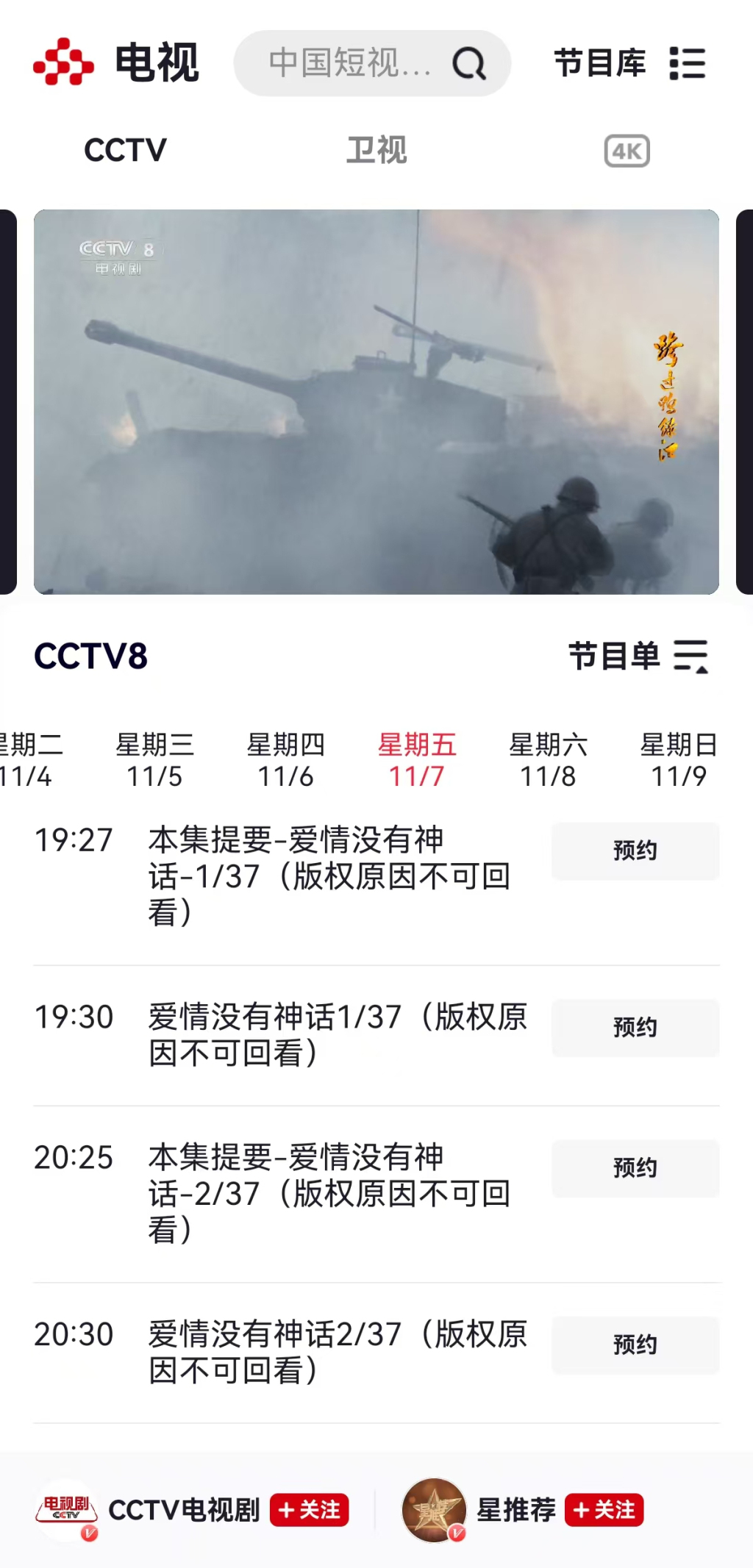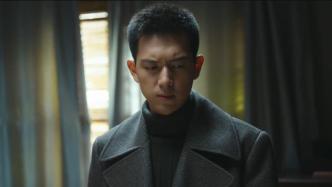
In 2020, the TV series "Secret and Great" was broadcast and won multiple domestic awards, and young screenwriters Pu Wei and Huang Chen also entered the public eye. Four years later, their new work "When the Stars Shine" landed on Hunan Satellite TV and Mango TV. It is also a spy war story in the Republic of China, but it draws completely different character arcs.
Gu Yaodong, the protagonist of "Secret and Great", is an ordinary boy who grew up in an alley, while Hua Zhen in "When the Stars Shine" is an elite young man from a high-ranking KMT official's family. How he completes his transformation and conversion is the focus of this story. At the same time, the two screenwriters also hope to restore the details of people's lives and work during the Anti-Japanese War as realistically as possible.
When they were writing "Secret and Great", they read a lot of books about the police in the 1930s and 1940s, and visited the Shanghai Police Museum many times. This time, they also found a lot of historical materials and books about smuggling, Kuomintang factional struggles, and the first batch of female police officers, and read and studied them. Because the male protagonist Hua Zhen's home is in Nanjing, Pu Wei and Huang Chen also went to Nanjing Yihe Road, a street where many Kuomintang senior officials once lived, to "find the prototype of the Hua family."

Li Xian as Xiang Yuansheng/Hua Zhen
In the play, the biography "The Moment of Human Choice" (also known as "When the Stars Shine") is an important plot clue, and to some extent, it also serves as an outline of the theme of the story. In addition, the book says: "A decision with far-reaching impact is tied to a single date, a single hour, and often only a minute. Such dramatic moments, moments of fate, are extremely rare in personal life and in the evolution of history." This also became the reason why the two screenwriters used this book to start the play: "We used this book at the time because it talked about the concept of 'decisive moment'."
Hua Zhen in the play should have walked on the "broad road" of the children of the rich and powerful, but because of a book handed to him by his respected teacher, his whole life changed, and he stepped onto another track step by step and walked into the sea of the people. In 1936, Shanghai was about to storm and the clouds of war were shrouded. At that time, the Communist Party was facing the encirclement and suppression of the Kuomintang. It was during the arduous and significant Long March, which was a decisive moment for the fate of the party. Hua Zhen experienced several important choices and was standing at the crossroads of life, facing his own decisive moment. "How did the ancestors of that era make their choices in a special period, experience personal decisive moments, and then reverse the fate of the entire nation in the torrent of history?" This is a topic that the two screenwriters are very interested in.
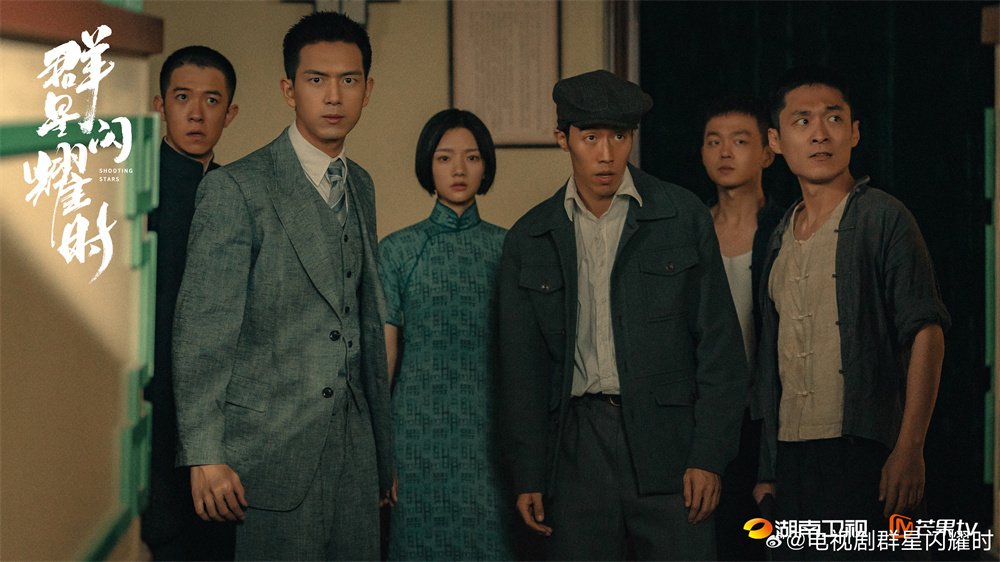
Stills from When the Stars Shine
"In today's society, we may think that it was inevitable for our ancestors to choose the Communist Party, but in fact, a hundred years ago, people were in different positions of the times. For them, this choice was not a priori inevitable, but a process of exploration and thinking, personal choice and destiny." The two screenwriters summed it up. When this process is presented in "When the Stars Shine", it makes it not like a standard spy war drama, but a story of young people of the era looking for faith and growing up.
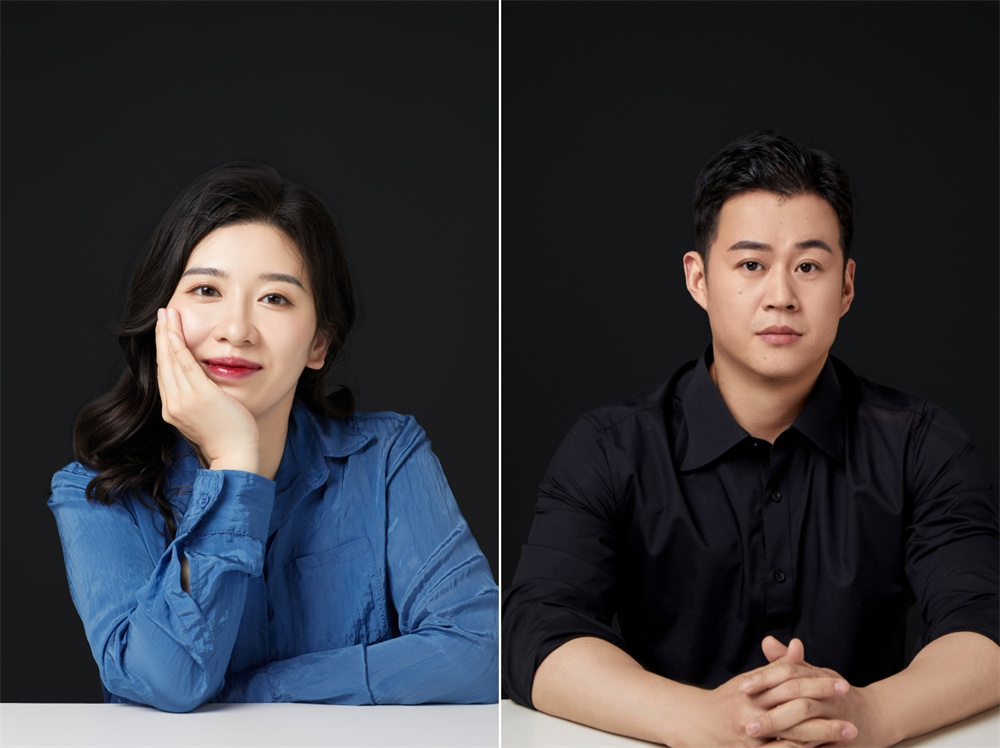
Screenwriter: Huang Chen, Pu Wei
【dialogue】
Several points in Huazhen's faith transformation
The Paper : Is it more difficult to write about Hua Zhen, who comes from an elite family, and his transformation in faith and growth process? I would like to ask you two to talk about the creative process of the character?
Huang Chen : From a creative point of view, it is indeed more difficult. How can we make people believe that such a person will go to the revolution and to our party? He is not like Gu Yaodong, who was a blank slate at the beginning. As long as someone guides him, he can move forward. But Hua Zhen already has a strong sense of self-awareness and belief at the beginning of the story. How to show his transformation is indeed the place where we spend the most effort when making this drama. And it can be said that every character in the play has a part of the task to serve to promote Hua Zhen's transformation.
The Paper : The character of Hua Zhen was very elitist in the early stage, and his elitism was subtly accompanied by a sense of "distance" from the common people.
This arrogance needs to change, perhaps the screenwriter put a lot of effort into the writing.
Huang Chen : At the beginning, we set him as a student in the elite class of the Navigation Department. At that time, he firmly believed that only the elite class like them could save China. He was isolated from the common people and had no contact with them during his growth. In the second half of the story, he gradually saw what some of the Kuomintang elites, including the Hua family, were doing: reselling arms, colluding with the Japanese to smuggle... his identification with his class gradually disintegrated.
We put him in a "class for the poor" environment like the Fourth Institute. He came into contact with young people like Luo Minmin and Chen Hao, and he gradually realized that the real power to save China still came from the masses, not the so-called elite class of the Kuomintang at that time. Later, he left the Fourth Institute and returned to his elite class, but the audience should be able to feel that Hua Zhen could no longer return to his original little world.
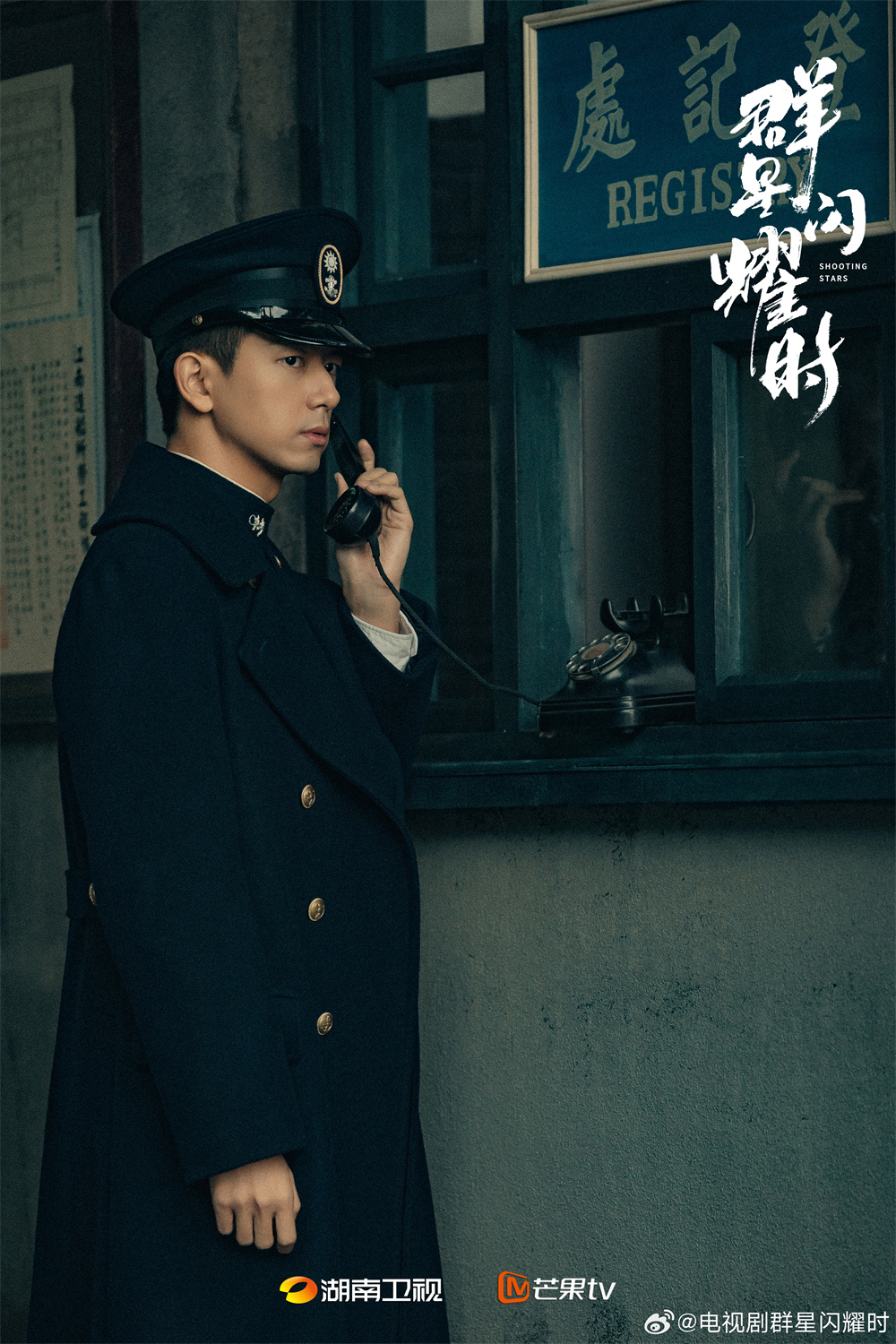
Stills from When the Stars Shine
Pu Wei : I think we can simply summarize a few key points. At the beginning, Hua Zhen was a confident but confused young man. From receiving Deng Mingyuan's instructions to entering the Fourth Institute, he has always been very confident in his own experience and cognition.
The next stage was to gradually become friends with the Communists, including Chen Hao, and discover that he shared the same ideals and affinities with them. They experienced life and death together, and what happened during this period made him full of respect for the Communist Party and also made him suspicious of the actions of the Nationalist government.
Then, when Deng Mingyuan died, he was deeply shocked. He was devoted to saving the country, but everything he believed in was crumbling. Should he still persist? Deng Mingyuan's dying message pointed out the only way to save the country, which was the Communist Party. In fact, at this time, he, Chen Hao, and Shi Junyu had already become comrades-in-arms. Whether intellectually or emotionally, Xiang Yuansheng had already turned to the Communist Party.
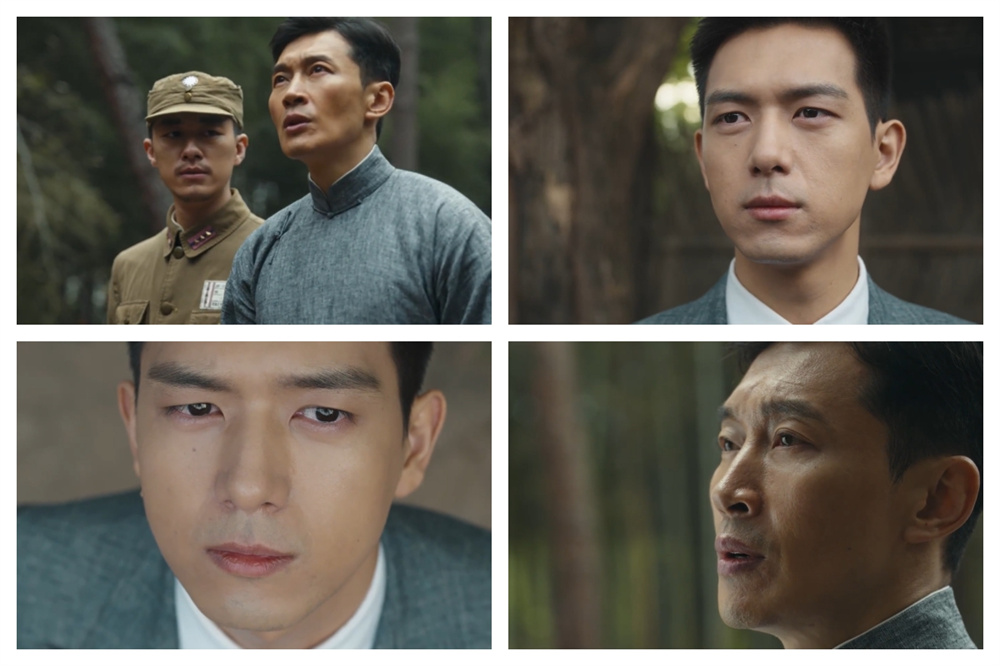
Hua Zhen is deeply moved by Deng Mingyuan's (Cao Lei) sacrifice.
Finally, when he discovered that his family was also involved in the arms smuggling case of the Kuomintang high-level officials, he completely cut off the last glimmer of hope. At the same time, during this process, he established friendships with Communists such as Chen Hao and Shi Junyu, and established the budding of his understanding of the Communist Party, and finally blossomed with them.

As the truth of the smuggling case gets closer, Hua Zhen begins to suspect Hua Liang.
The Paper : Most similar works may have skipped the process of building faith and went straight to spy wars or revolutions. But from "Secretly Great" to "When the Stars Shine", you have been telling the story of the process of building faith. Why do you two prefer this kind of narrative?
Huang Chen : On the one hand, we don’t really want to make a pure spy drama, although there are many good spy dramas. On the other hand, we prefer to think about the theme of the entire drama before writing it. After the theme is clear, I found that if we stick to the spy war, it may be a bit out of the theme we want to express, so maybe writing a growth story like this is more in line with what we want to express and can make more efforts, so we didn’t think too much about the issue of typification.
In fact, many times, the type of drama we write has a lot to do with what kind of dramas we usually like to watch. My favorite spy drama so far is "The Cliff". Its narrative is very delicate. To be honest, the plot density is not high in this genre, but the thrilling "standing on the edge of the cliff" of the characters in the play left a deep impression on me. We both like this kind of drama, and we may subconsciously lean towards this style. More often, we are still thinking about how to write a good person, rather than thinking about how to make the plot more exciting.

Ren Min as Luo Minmin
“What is the red line for censorship?”
The Paper : What do you most want to convey and express in this drama?
Huang Chen : In a person's life, there will definitely be many decisive moments. When this moment comes, what choice should we make? What is the standard for this choice? I can't give a standard answer, and I dare not say that I will teach you anything. I just want to show you the process of Huazhen's choice. If I have to summarize it simply and roughly, it may be to live up to myself and the country.
Two days ago, we went to the Radio and Television Bureau for training. At that time, I heard Deputy Director Zhu say that screenwriters always ask what the red line of censorship is. You just need to ask yourself after writing the script: Would you like to show your script to your children? Many years later, when your children grow up, can you proudly tell them that mom and dad once wrote such a script? He said: This is a red line that a screenwriter sets for himself.
I think when we make a choice, we should think about the same thing: what is your standard? Are you worthy of your conscience? For a small person like Luo Minmin, when she chose not to let go in a critical moment, she lived up to her original intention as a police officer.
The Paper : I would like to talk about the division of labor between the two of you. I think it is very easy for two creators to quarrel.
Huang Chen : It’s the same as when we were working on “Secrets”. We discussed the outline together, and I was mainly responsible for structuring the story. Then I wrote the manuscript, and we still had arguments like before, every time we discussed the script (laughs).
Pu Wei : We have communicated with many screenwriters and found that they are all similar and will quarrel, so quarreling seems to be inevitable. When everyone is fully committed, they will insist on what they think is good. But this good is endless. You think it is good, but the other party thinks it is not good. Then everyone needs to think about both their own and the other party's ideas, and push each other to take one step forward. Maybe we can get something that everyone thinks is not bad.
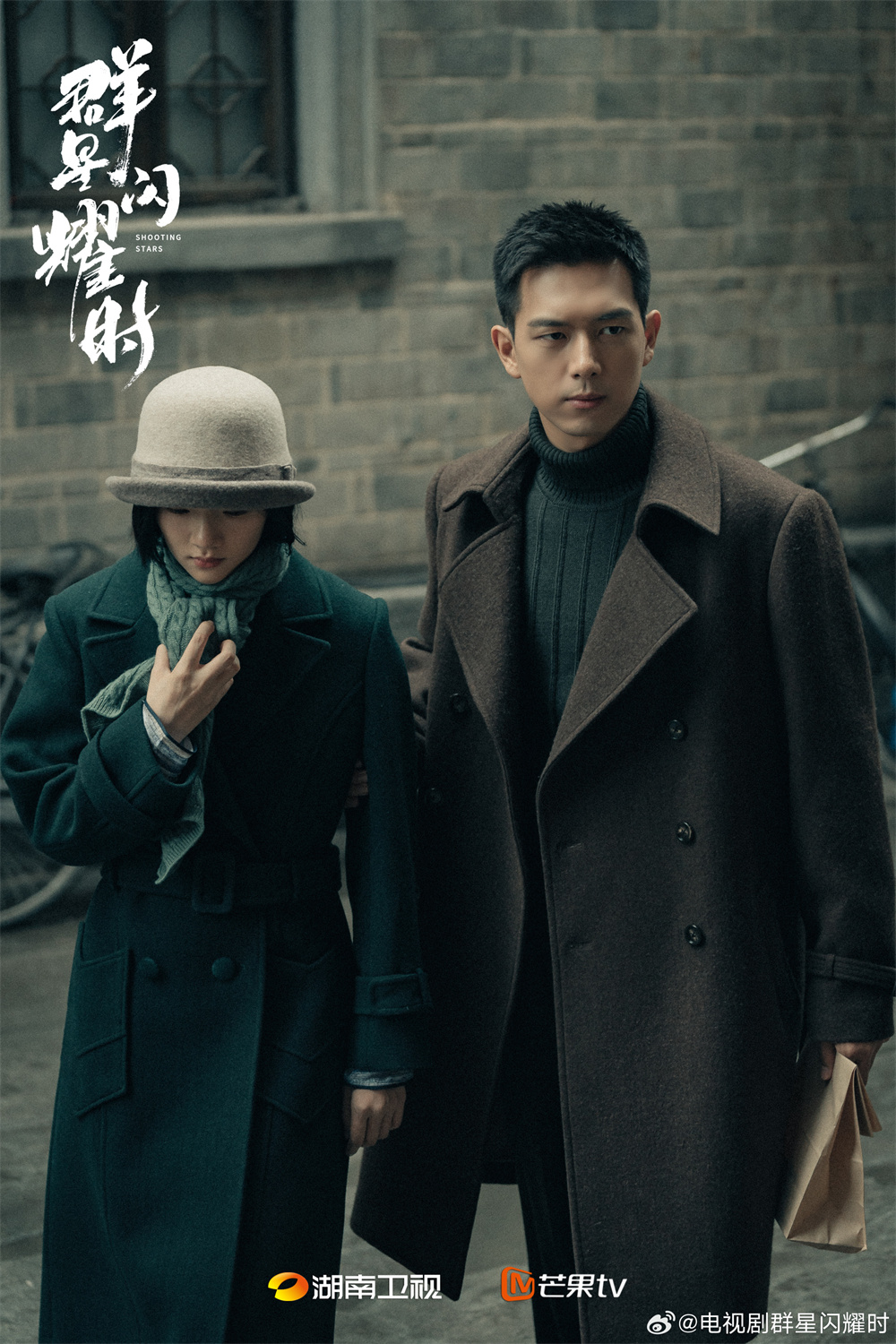
Stills from When the Stars Shine
TV series are both commodities and works of art
The Paper : You two have produced two original works in a row, which is very rare in the current market dominated by IP adaptation. Can you talk about the similarities and differences between adaptation and original creation, and your experience and thoughts in original creation?
Pu Wei : Actually, we do not reject adaptations. But adaptations are also divided into different types. There is a type of IP that has a large reader base and a particularly high degree of reader recognition. For this type of IP adaptation, what should be done is to restore the part that is recognized by readers as much as possible and convert its text language into film and television language. There is no need for too much secondary creation, but there are not many works that can easily complete this transformation. Another type of IP may just provide you with an idea, a shining point, a theme, and you need to make a lot of modifications and original creations.
When we create original works, we are not particularly anxious to promote stories and characters. We will first find a theme that we are particularly interested in. Within this theme, what we want to express is based on our own understanding and position of the world. After finding the core of the story, we will work on the story and characters. So I think that sometimes IP adaptation can help you find a core story first, which is already relatively complete and can also provide you with some ideas for subsequent work.
Novels are indeed very different from TV dramas. Novels can be more open, but when it comes to TV dramas, people’s patience is limited, especially in this era. We feel that under the impact of short videos, the audience may have new requirements for the rhythm of TV dramas. So when adapting, we also have to think about the story of the original work. What kind of rhythm will it have after being adapted into a film and television drama? Can it not make the audience lose interest? This is what we think is the common difficulty and thinking of both original creation and adaptation.
The Paper : If a work wants to "break the circle", it may need to find some kind of emotional resonance with audiences of different age groups and genders in the creation. As for how screenwriters can achieve this kind of emotional resonance, I would like to hear from you two.
Pu Wei : We don’t think much before writing a script. We basically start from what kind of story we want to tell. It mainly depends on whether there are points that can really impress us during the process, and whether we have the urge to finish it. If there is nothing, it means that it is what we call a "job". Just telling a complete story without any spiritual core, it will not pass for us. TV series are both commodities and works of art. Of course, we must respect its market attributes, but we still have to adhere to the pursuit and expression of some creators.
Huang Chen : For me, writing a script that is not sincere is very important. I think if it is not sincere, it is not what I should do as an original screenwriter. At least that is what I think now, and I hope I can stick to it. We should of course study the current market and consider storytelling techniques, but before that, as an original screenwriter, we must follow our own heart. What kind of story do I want to tell the audience? This story is not sincere, and I think the audience can feel it.


